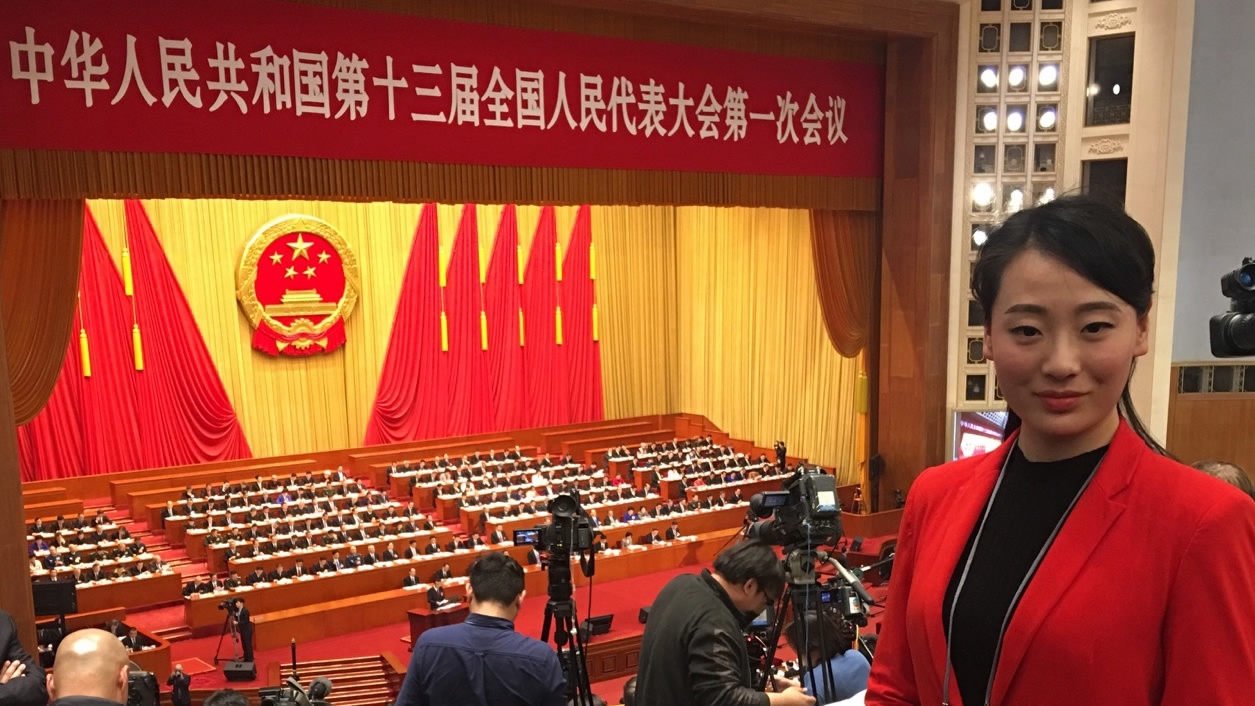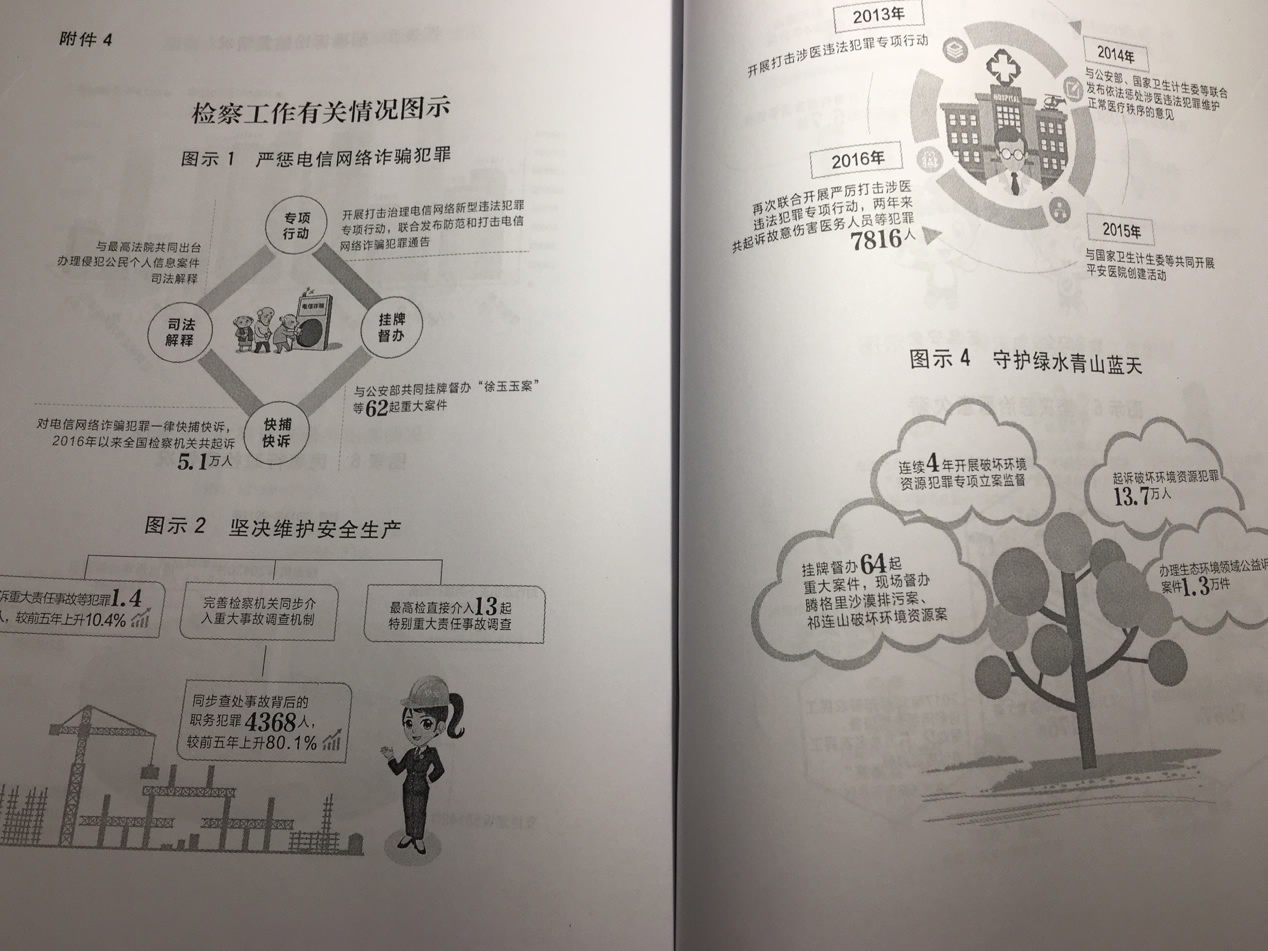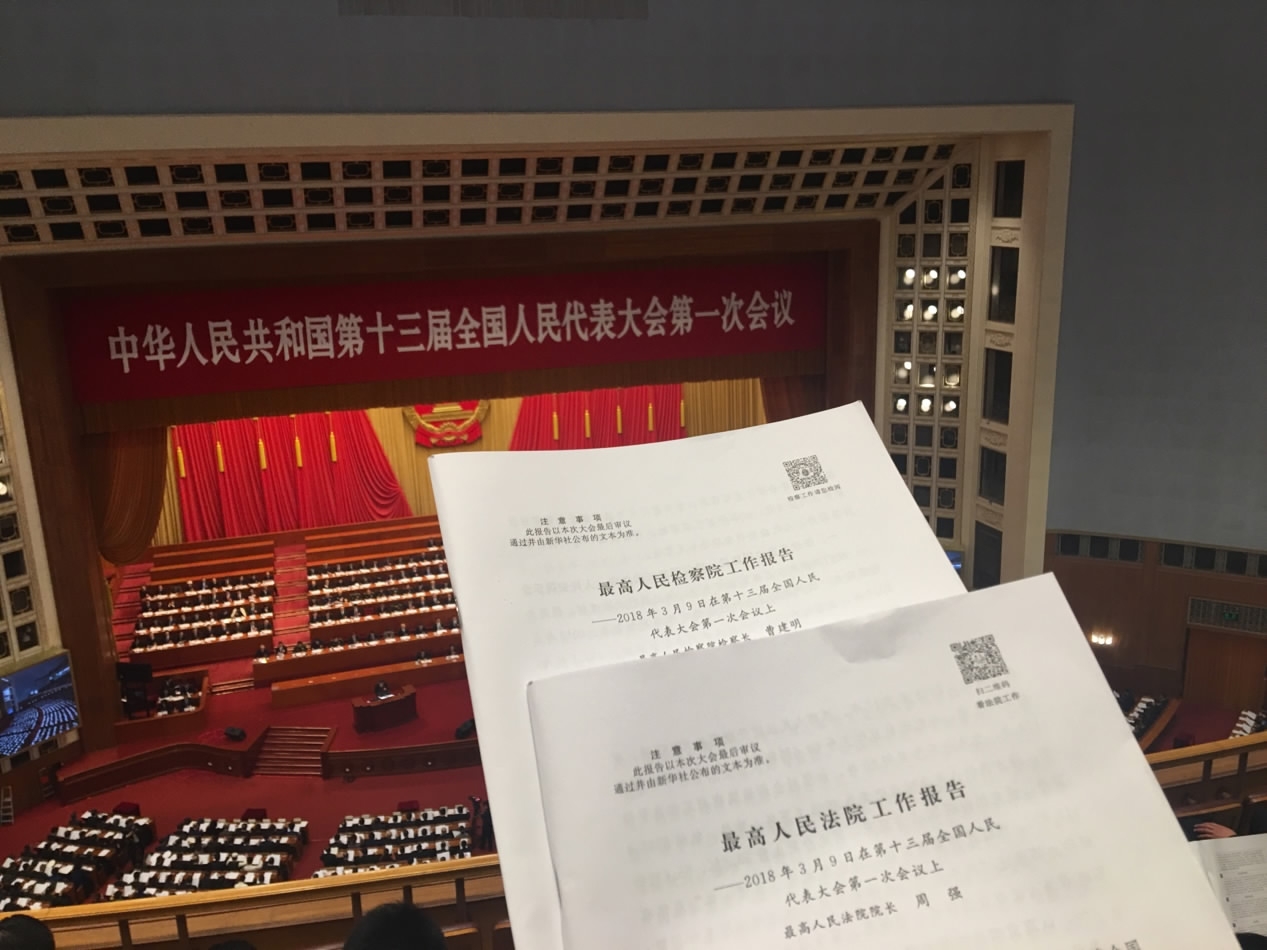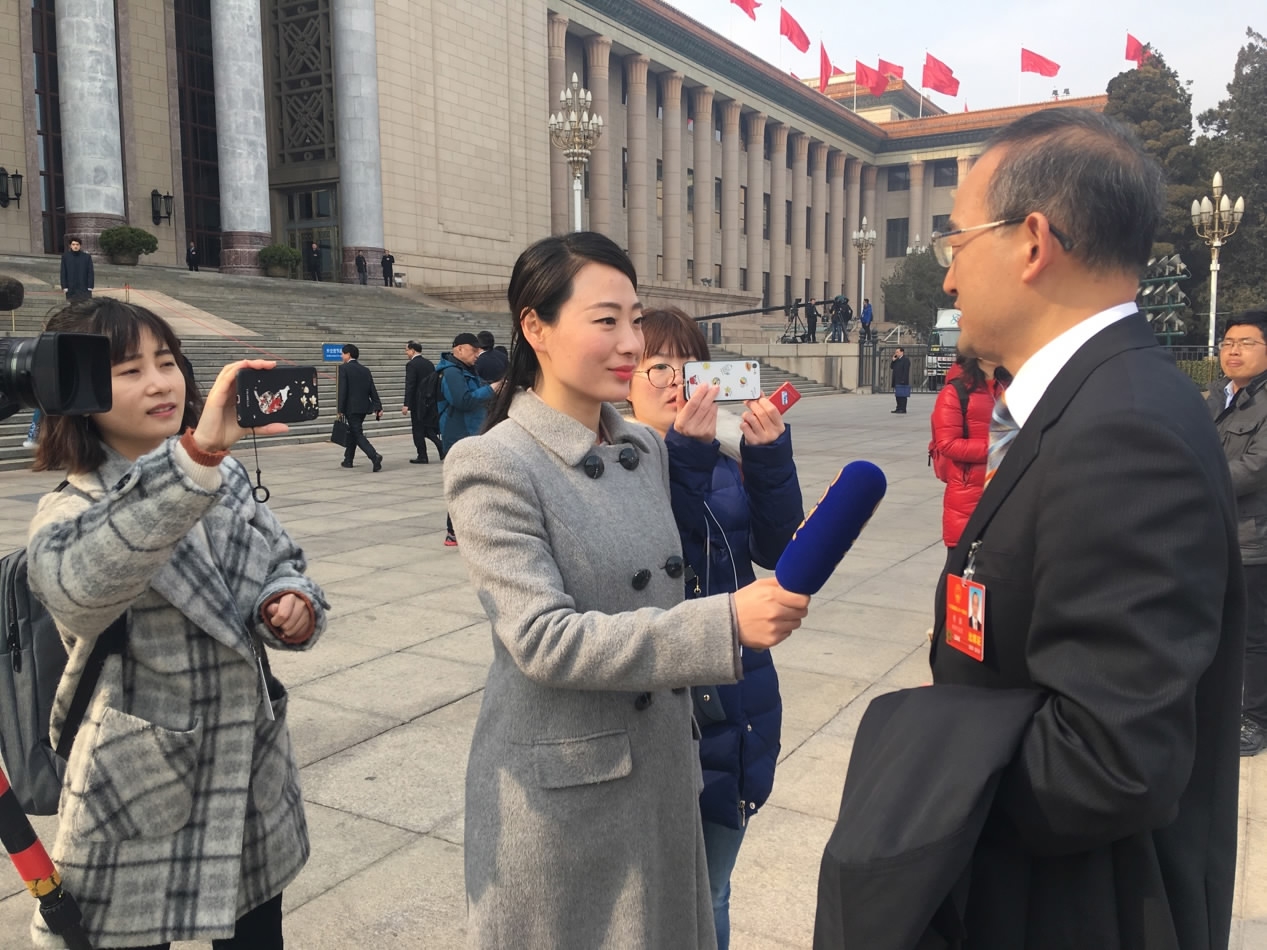
Politics
08:57, 10-Mar-2018
Reporter’s Diary: Judicial system reform further improved
By Su Yuting

This is my eighth consecutive day working around the clock covering the Two Sessions. I'm attending another significant assembly following the opening sessions of the 13th National People's Congress (NPC) and the 13th National Committee of the Chinese People's Political Consultative Conference (CPPCC).
The heads of China's Supreme People's Court and Supreme People's Procuratorate delivered their work reports to the NPC during this assembly in a chance to tell the nation their accomplishments. They cited achievements made over the past five years on graft cases, correcting wrongful convictions, and improving social security.
It took about two-and-a-half hours for the Chief Justice and Procurator-General to deliver their reports as there were a number of highlights on advancing judicial system reform. The work report of the Supreme People’s Court has 79 pages while that of the Supreme People’s Procuratorate has 87. Those thick reports are the collective wisdom from the judicial and procuratorial organs. What impressed me most was that the reports were very reader-friendly and even had some vivid cartoons with statistics in bold to elaborate on the detailed efforts made by the judges and prosecutors.

CGTN Photo
CGTN Photo
At 3:00 p.m., Chief Justice Zhou Qiang began his report, saying there has been important progress in the reform of the Supreme People’s Court. “Eighteen reform-related tasks led by the Supreme People's Court have been completed. Sixty-five measures to comprehensively deepen reform of the People’s Courts have been fully implemented,” Zhou said.
He added that between 2013 and 2017, the Supreme People's Court was able to wrap up the vast majority of the 82,000 cases it handled. Zhou noted that the Intellectual Property Law has been enhanced, and that about 13,000 people were convicted for bribery, while 39 major wrongful judgments were rectified.

CGTN Photo
CGTN Photo
Immediately after the Chief Justice concluded his report, Procurator-General Cao Jianming stepped up on the podium to announce the prioritization of the building of a safer China. He said that authorities have approved the arrests of over 4.5 million suspected criminals and prosecuted around 7 million over the past five years. Since October 2014, 222 fugitives implicated in duty-related crimes have been repatriated or persuaded to return to China from 42 countries and regions. Among them, 35 were listed in an Interpol red notice. That’s part of the efforts of the country’s anti-corruption campaign cracking down on high-ranking tigers to low-level flies.
Meanwhile, what grabbed the attention of the foreign media was China’s cooperation with other countries. In 2017, China successfully hosted the 22nd International Conference of Prosecutors, while the Supreme People’s Procuratorate has signed 145 bilateral agreements with judicial institutions in 95 countries and regions.

CGTN Photo
CGTN Photo
After the meeting, we rushed to grab interviews from some NPC deputies. Some told me one of the notable reforms made was limiting the quota of judges to help them in making impartial and sound judgments. Other said the judicial reforms have been implemented well from the top to the bottom grass-roots level.
It was very late when I returned home after finishing all of the work. This year’s political season is perhaps the longest one that I have covered. The arduous tasks require both mental and physical energy to go through them from early morning until midnight day by day. Exhausted yet excited… like many journalists from home and abroad, we are closely watching what decisions will be made by China’s lawmakers and political advisors in the new era that will shape the development of the country and significantly impact the future of the world.

SITEMAP
Copyright © 2018 CGTN. Beijing ICP prepared NO.16065310-3
Copyright © 2018 CGTN. Beijing ICP prepared NO.16065310-3